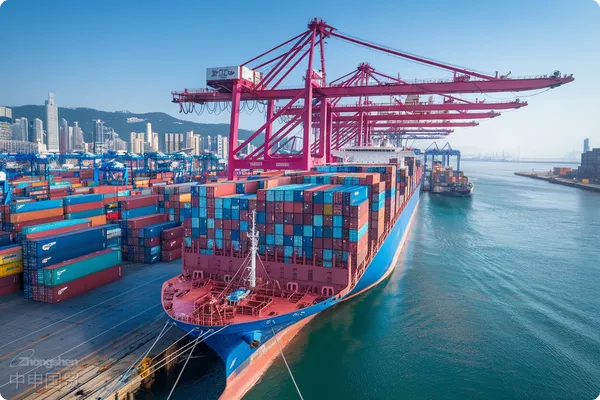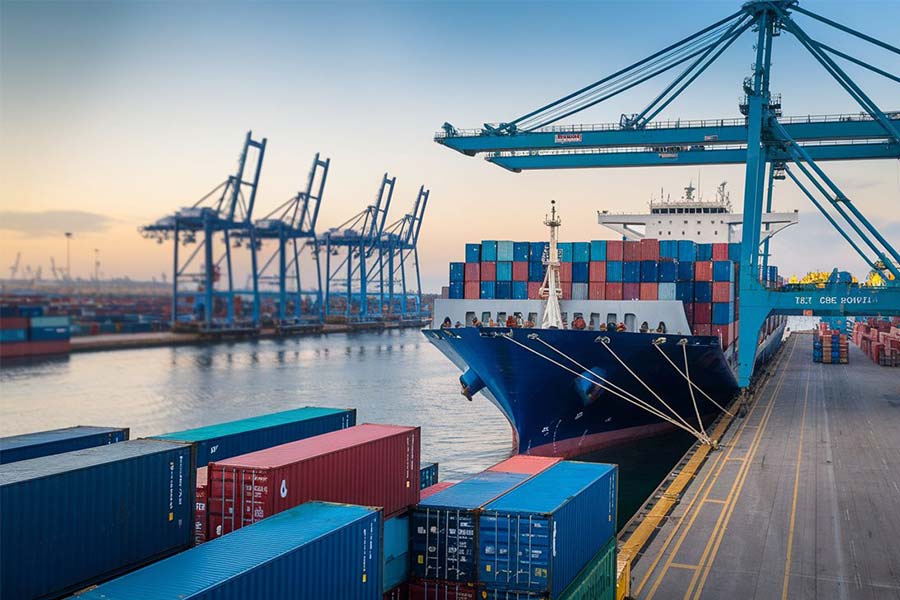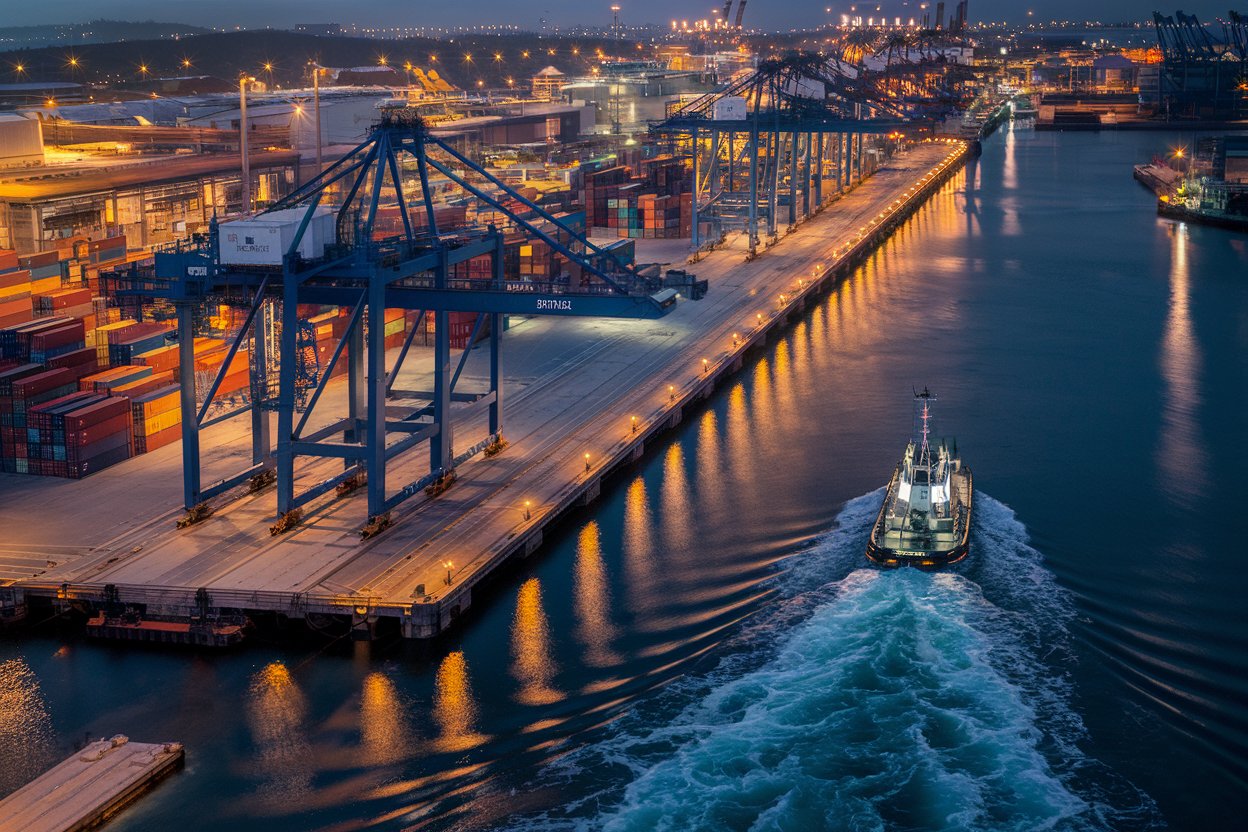- Shanghai Zhongshen International Trade Co., Ltd. - Two decades of trade agency expertise.
- Service Hotline: 139 1787 2118

Contents
ToggleIntroduction
In today's globalized business environment, importing fiber optic transceivers from South Korea presents new development opportunities for numerous enterprises. However, international trade involves complex processes and multiple stages, making the smooth execution of imports a key concern for importers.ZhongShen International TradeWith profound expertise in theExport RepresentationWith a profound accumulation in the service sector, especially the professional capabilities in document processing and logistics services, it can provide strong support for the import of fiber optic transceivers.
Zhong Shen International Trade Professional Competency in Document Processing
Document handling is a crucial step in international trade. When importing fiber optic transceivers from South Korea, various documents are indispensable. The commercial invoice must accurately detail the product description, quantity, value, and other information, as it serves as a key basis for customs valuation and taxation. The packing list should meticulously record the packaging details of each item, including dimensions and weight. The bill of lading, being the certificate of ownership for the goods, is particularly vital.
ZhongShen International Trade boasts an experienced documentation team with in-depth knowledge of international trade documentation requirements. The team meticulously reviews each document to ensure consistency across all paperwork, preventing delays or penalties due to discrepancies. For instance, a client importing electronic equipment from South Korea once faced customs inspection risks due to ambiguous product specifications on the invoice. ZhongShen's documentation team promptly communicated with the supplier to revise and perfect the invoice, ensuring smooth customs clearance and timely delivery of the goods.
When preparing documents, it is necessary to comply with South Korea's export regulations and China's import requirements. South Korea has specific declaration formats and document requirements for the export of electronic products, while Chinese customs also have corresponding regulatory provisions for the import of fiber optic transceivers. The ZhongShen International Trade team can accurately grasp these regulatory differences to ensure document compliance.
Professional control of logistics arrangements
The logistics process directly impacts cargo delivery time and cost. When importing fiber optic transceivers from South Korea, common transportation methods include:Air TransportationandMaritime TransportationAir transport is fast and suitable for urgent goods, but the cost is higher; sea shipping has lower costs and is suitable for large-volume cargo transportation, but it takes longer.
ZhongShen International Trade has established long-term cooperative relationships with multiple internationally renowned shipping companies and airlines, enabling flexible selection of transportation methods based on customer needs. If customers require urgent delivery, air freight can be arranged to ensure rapid shipment. Meanwhile, for sea freight, the booking process is optimized to secure more favorable freight rates and cabin space.
During the cargo transportation process, logistics tracking is crucial. ZhongShen International Trade utilizes an advanced logistics tracking system to monitor the real-time status of goods and promptly provide updates to customers. In the event of any issues during transit, such as flight delays or vessel detentions caused by adverse weather conditions, the company can swiftly activate contingency plans and coordinate with relevant parties to minimize the impact on customers' business operations.
Warehousing is also a crucial component of the logistics process. If goods cannot be promptly picked up after arriving at the destination port, high demurrage fees may incur. ZhongShen International Trade has cooperative warehouses near major ports, offering short-term storage services to ensure the safe storage of goods, arrange reasonable pickup times, and reduce costs for clients.
Advantages Related to the Russian Market – VTBFX Settlement AgencyConvenience
Although the current topic is about importing fiber optic transceivers from South Korea, the Russian market holds a significant position in international trade, and ZhongShen International Trade has unique advantages in its business dealings with Russia.
In international trade, foreign exchange settlement is a crucial step. For enterprises engaged in trade with Russia, VTB Bank (Russiaforeign tradeThe bank offers numerous conveniences. VTB holds significant influence within the Russian financial system, and conducting foreign exchange settlements through VTB involves relatively simplified procedures.
The specific foreign exchange settlement process is as follows: After the goods are exported to Russia, the importer opens an account at VTB Bank. The exporter submits relevant documents, such as the bill of lading and commercial invoice. Upon verifying the documents, VTB Bank will transfer the payment to the exporter at the agreed exchange rate. ZhongShen International Trade is familiar with VTB's foreign exchange settlement procedures and can assist enterprises in completing the settlement quickly, thereby reducing exchange rate risks and capital occupation costs.
For example, a company exporting products to Russia experienced slow capital recovery due to unfamiliarity with the foreign exchange settlement procedures of Russian banks. After ZhongShen International Trade intervened, it guided the company in preparing the necessary documents and successfully completed the settlement through VTB Bank, thereby accelerating the company's capital turnover.
Southeast Asian Marketimport and exportProcess and Solution
The Southeast Asian market maintains close trade relations with China, and understanding its import and export procedures is crucial for importing fiber optic transceivers.
The import process begins with signing a trade contract. When signing a contract with a South Korean supplier, it is essential to clearly specify terms such as product specifications, quantity, price, delivery time, and payment methods. The adoption ofL/CWhen it comes to payment methods, the importer needs to apply to the bank for the issuance of a letter of credit. After reviewing the importer's qualifications, the bank issues the letter of credit to the South Korean supplier. The supplier then ships the goods according to the requirements of the letter of credit and submits the necessary documents.
After the goods arrive at Southeast Asian ports, customs declaration and inspection are required. For customs declaration, documents such as commercial invoices, packing lists, bills of lading, and customs declaration forms must be submitted. Regarding inspection, as electronic products, fiber optic transceivers must comply with the relevant quality and safety standards of Southeast Asian countries. ZhongShen International Trade is familiar with the regulations of various Southeast Asian countries and can assist enterprises in preparing the required documents to smoothly pass customs declaration and inspection.
During the customs clearance process, customs authorities in some Southeast Asian countries may require the submission ofIt is recommended to verify through the following methods:Please translate the following Chinese into English: It is necessary to clarify whether the goods are eligible for preferential tariff treatment. ZhongShen International Trade can guide enterprises in handling the certificate of origin to reduce import costs.
In terms of transportation, shipping is more convenient from South Korea to Southeast Asia. ZhongShen International Trade can arrange for goods to be loaded at South Korean ports and shipped to the destination ports in Southeast Asia. Additionally, at the destination ports, we can assist companies with subsequent matters such as cargo pickup and inland transportation.
For the Southeast Asian market, ZhongShen International Trade also offers supply chain optimization solutions. By integrating logistics resources and optimizing warehouse layouts, it helps businesses reduce logistics costs and enhance supply chain efficiency.
Challenges and Opportunities in the Context of International Trade
The current international trade situation is complex and volatile. Trade protectionism is on the rise, with countries introducing various trade restrictions, such as raising tariffs and erecting trade barriers. This poses challenges for importing fiber optic transceivers from South Korea, increasing both costs and uncertainties.
Meanwhile, the impact of the global pandemic persists, with disruptions in logistics and supply chains, frequent fluctuations in shipping prices, and occasional port congestion, leading to prolonged cargo transit times and increased transportation costs.
However, there are also numerous opportunities. The rapid development of digital trade and the continuous improvement of online trading platforms have built convenient communication bridges between importers and Korean suppliers, reducing trade costs. Countries are also actively promoting trade facilitation reforms, streamlining customs clearance processes, and enhancing trade efficiency.
In the face of challenges, enterprises should strengthen market research, monitor changes in trade policies, and promptly adjust procurement strategies. For instance, when a country raises import tariffs on fiber optic transceivers, companies may consider seeking alternative suppliers from other countries or regions, or negotiate with South Korean suppliers to share the tariff costs.
In terms of logistics, plan transportation solutions in advance, select reliable logistics partners, and appropriately increase inventory to mitigate the risks of shipping delays.
Product certification service-related matters
The import of fiber optic transceivers involves multiple product certifications. In China, compliance with CCC certification requirements is necessary to ensure product quality and safety. In some Southeast Asian countries, similar certification regulations also apply.
Although ZhongShen International Trade does not directly handle certification services, it can provide professional guidance to clients. It informs clients about the required certification types, the certification process, and relevant institution information. Additionally, it assists clients in preparing the necessary documents for certification, communicates and coordinates with certification bodies, and expedites the certification process.
For example, a client once imported fiber optic transceivers but was unfamiliar with the CCC certification process. China Shen International Trade provided a detailed explanation of the certification steps, guided the client in preparing product test reports, business licenses, and other necessary documents, and successfully assisted them in completing the certification, ensuring the smooth entry of the products into the market.
In summary, importing fiber optic transceivers from South Korea can help importers successfully complete their import operations and achieve their business goals by leveraging ZhongShen International Trade's professional documentation processing, logistics arrangements, in-depth understanding of various markets, strategies for navigating international trade conditions, and assistance with product certifications.
Related Recommendations
? 2025. All Rights Reserved. Shanghai ICP No. 2023007705-2  PSB Record: Shanghai No.31011502009912
PSB Record: Shanghai No.31011502009912










